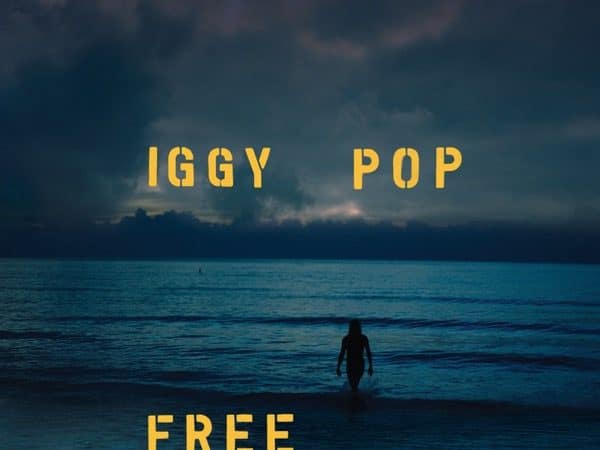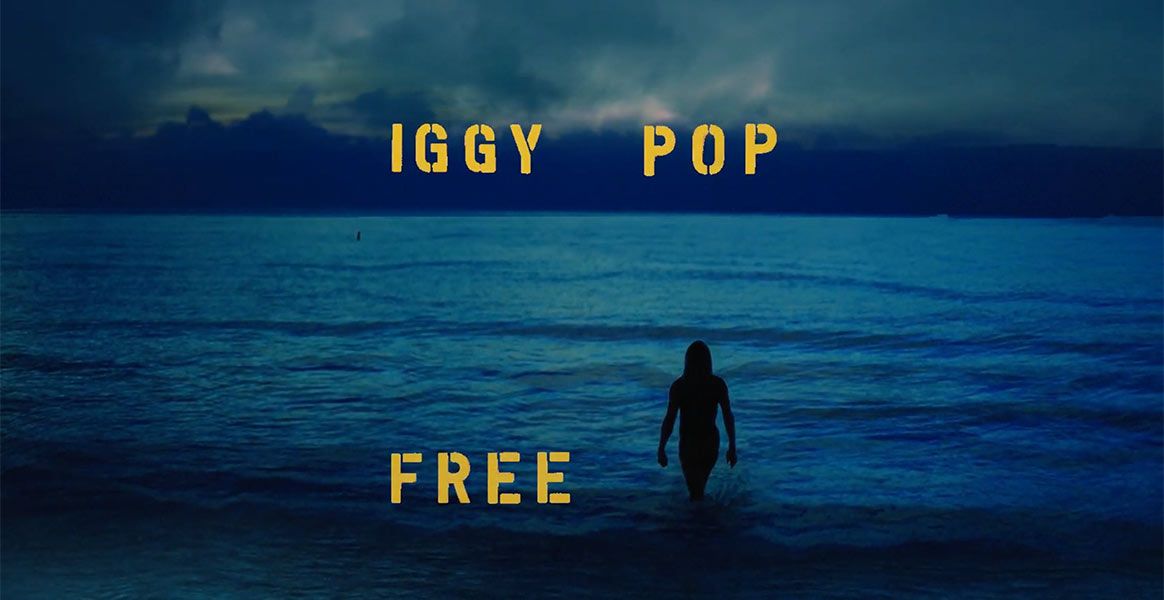
There’s no questioning the honesty of Iggy’s affiliation with the more experimental reaches of jazz – he’s spoken of the revelation of hearing ‘A Love Supreme’ in 1968, and the extent to which the Stooges’ apocalyptic discord was born from what he heard in that music. Likewise the brooding ‘Sonali’ is excellent, a randy paean to a first generation immigrant who won’t take his calls when he’s tipsy, delivered in an unusually mannered baritone. It sounds fevered, agoraphobic, hemmed in.

A descending rock riff that’s embellished, then suddenly dominated by Leron Thomas’ jazz trumpet, it builds thrillingly. Desire is up against the clock – take ‘Love’s Missing’, the most straightforwardly enjoyable track on the album.
IGGY POP FREE FREE
In the same way that Post Pop Depression was stalked by mortality, Free too flits between poignancy and very last chance urgency. There’s glimpses early on of the record that could have been. Unfortunately, that’s exactly what this fragmented and ultimately malnourished record sounds like. Speaking ahead of the album’s release, Pop discussed feeling “drained” after touring Post Pop Depression, and how this album “just kind of happened to me, and I let it happen”. On Free, Iggy has recruited the jazz trumpeter Leron Thomas and the experimental noise guitarist Noveller, tantalisingly suggesting a record that shelves its predecessor’s classicism in favour of invention. David gone, Lou gone, the original Stooges gone – the world’s forgotten boy is now the last man standing. And if we’re happier than ever to have Iggy around, well it’s not hard to see why. Post Pop Depression was billed by Iggy as his last ever and, continuing in that grand tradition of final ever (ever) albums and farewell tours, he’s back once again with another au revoir – and why not? Iggy got there first, and what thanks did he get?Ī career that yo-yo’d between occasional renaissance and decade-long patches of commercial indifference. Written and recorded with Josh Homme, Post Pop Depression was released just weeks after the death of Iggy’s collaborator and patron David Bowie, and exhumed much of the thrilling avant -rock grandeur that typified the work he had made with Bowie on The Idiot and Lust for Life.


When we last left Iggy Pop, it was on his best, most cohesive record in at least two decades.


 0 kommentar(er)
0 kommentar(er)
